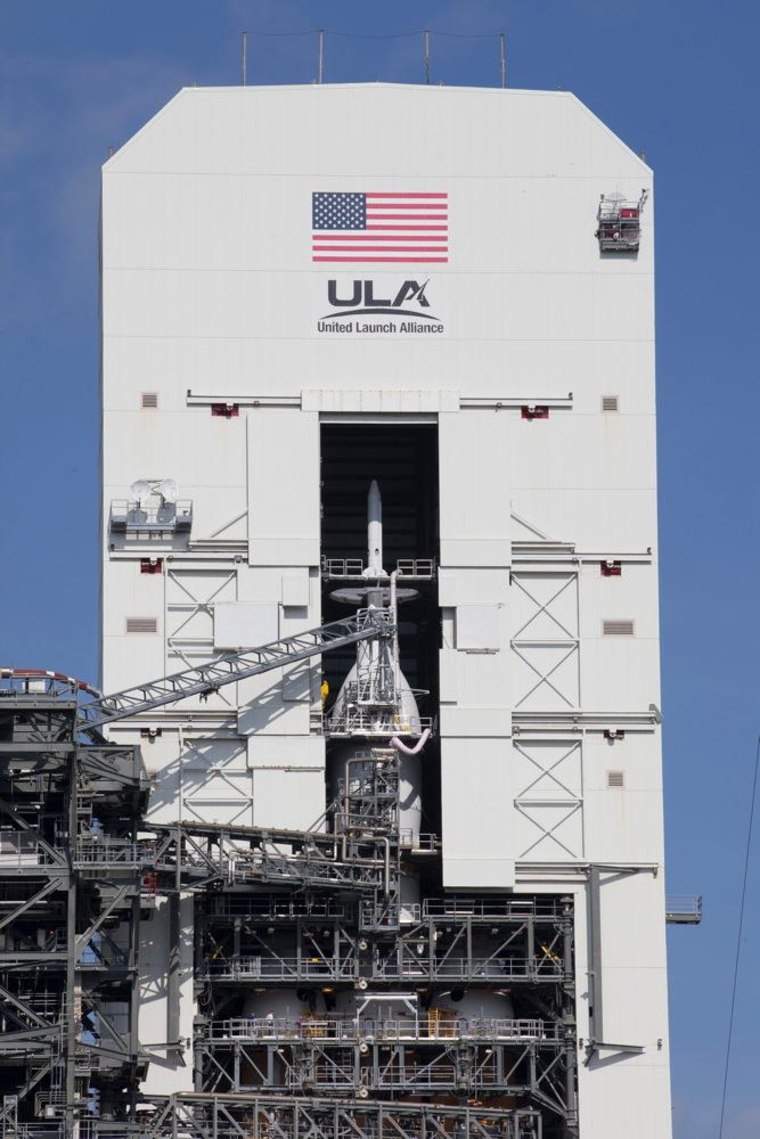CAPE CANAVERAL, Fla. — NASA's newest space capsule, the Orion deep-space vehicle, is ready for a landmark test flight on Thursday (Dec. 4), and as long as Mother Nature doesn't rain on the space agency's parade.
The Orion spacecraft is set to launch Thursday at 7:05 a.m. EST (1205 GMT) from a pad here at the Cape Canaveral Air Force Station. A huge Delta 4 Heavy rocket, built by the United Launch Alliance, will loft the spaceship on its way, with current forecasts predicting a favorable 60-percent chance of good weather for the test flight.
"[The rocket's] in good shape and we're really excited to launch this on Thursday," Ron Fortson, ULA director of mission management said in a mission update Tuesday (Dec. 2). "The weather is looking pretty good." [ Orion's First Test Flight: Full Coverage ]
The spacecraft has about 2 hours and 39 minutes to get off the ground before the launch window closes for the day, and at the moment officials are predicting a 60 percent chance that weather will be favorable during that time. Officials also added that everything is looking good with the rocket and Orion ahead of the launch.
For Orion's first test flight — called Exploration Flight Test 1 (EFT-1) — the capsule will be lofted high above Earth, making two orbits of the planet before splashing down and hopefully being recovered in the Pacific Ocean about 4.5 hours later. Officials are also expecting good weather in the splashdown area Thursday.

NASA officials hope that one day Orion will help deliver humans to Mars or an asteroid towed into orbit around the moon. "Part of me hopes that everything is perfect," Mark Geyer, NASA Orion Program manager said during the news conference. "We land, high fives, everybody has a great time, but really, in a flight test like this, if there are subtleties in how the vehicle behaves with the environments, or subtleties with how systems actually behave with one another during flight, my hope it that we find that on this test flight."
— Miriam Kramer, Space.com
This is a condensed version of a report from Space.com. Read the full report. Follow Miriam Kramer @mirikramer. Follow us @Spacedotcom, Facebook and Google+.